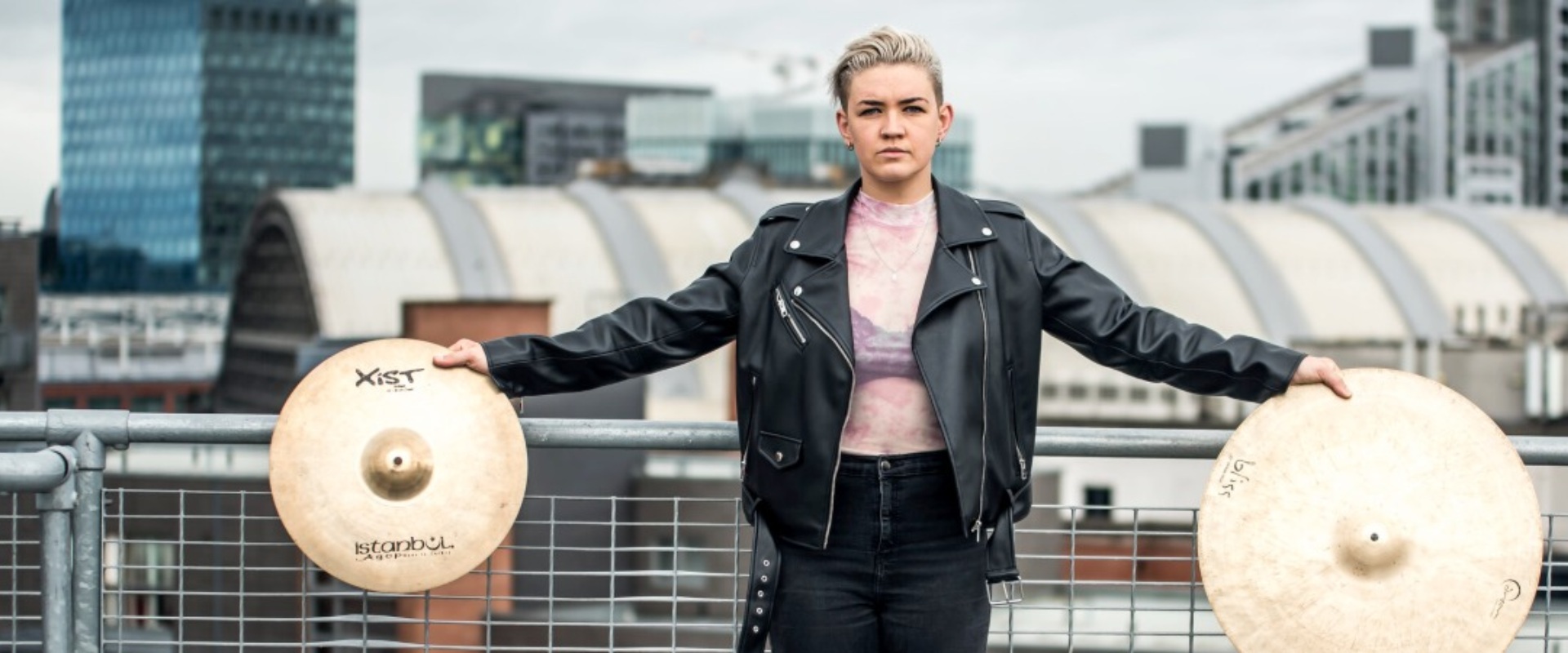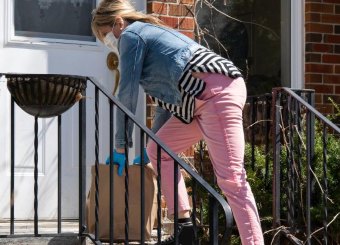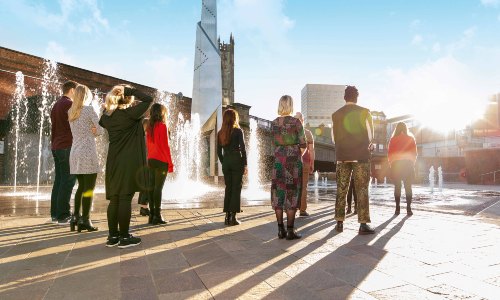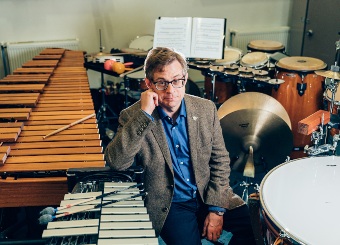Producing music in isolation for an upcoming star-studded radio play, Manchester graduate Sophie Galpin (MusB Music 2012) is playing her part in helping to secure the future of a cultural sector facing a massive financial shock caused by the coronavirus pandemic.
Arts and culture add more than £10.8 billion to the UK economy every year, as well as offering escapism and hope. Music graduate Sophie believes it’s vital that society continues creating to help aid the recovery of the industry after the pandemic.
“It’s more important than ever for creatives to be working together. Firstly to keep the artistic economy and morale going, but also to ensure that there are theatres, music venues and all kinds of art spaces for audiences to go back to once this is over,” she explains.
It’s more important than ever for creatives to be working together.
Supporting the sector
Sophie is producing music for The Understudy – starring Stephen Fry, Emily Atack, Sarah Hadland and Russell Tovey – which will be broadcast online later this month to a paying audience of listeners. Proceeds from the play, based on the novel by David Nicholls, will be donated to the Acting for Others, the Equity Charitable Trust, Equity’s Benevolent Fund and the Theatre Development Trust.
She has also been raising money for Manchester’s Royal Exchange Theatre by donating the proceeds from sales of her soundtrack to the adaptation of Wuthering Heights, staged there earlier this year. Sophie collaborated on the music for the production with composer and sound designer Alexandra Faye Braithwaite.
It was Alexandra who asked Sophie to join her on The Understudy, alongside Annie Fletcher. “The three of us together have a sort of Venn diagram of overlapping skills with slightly different specialities, so we complement each other really well,” says Sophie.
“All the actors recorded their lines themselves and sent over the audio, which Annie heroically pieced together. Between us, we split it all up to work on to make it sound like a coherent production in terms of sound design, music, foley, sound effects and general vibe! It’s been an exciting challenge for us all.
“In terms of the music, which is my main area, it’s all about interpreting non-musical ideas, gestures and tone to complement the action and dialogue – which is somewhere between an art and a science!
“Obviously communication is always key – and everything is so much easier to explain when you’re in the room or studio with your co-workers – but when you’re forced to adapt, you just do.
“Broken Bird Studios (the company set up by Sophie, Alexandra and Annie) have a never-ending WhatsApp thread of nightmares – but generally we understand each other well anyway in terms of what fits and what doesn’t.”
Performing online
Away from theatre, Sophie, who has performed at Glastonbury with the likes of Self Esteem and SOAK, has been supporting local and national causes by performing her own material under the name Soft Lad at online festivals.
“I’ve been doing a few streamed gigs from home. Most recently for the Pxssy Pandemique festival organised by my bandmate Rebecca Lucy Taylor, who performs under the moniker Self Esteem. She and my other friend Kelli Blanchett organised two rounds of a three-day, all-female-identifying festival which streamed on Instagram and raised over £7,000 for Women’s Aid,” says Sophie.
“I also played for Coming Out Staying In festival, which was raising money for Allsorts – an LGBTQ+ charity based in Brighton. I also played a fundraiser for Sounds from the Other City festival based on our doorstep in Salford which had to be cancelled this year.”
A new perspective
Returning to the recovery of the sector and the people who make up the industry, Sophie is optimistic for a post-pandemic future.
“Without holistic support, a lot of institutions and creatives could go under. We are all being forced to adapt and we are all trying to make the best of it, and I think some exciting work will come out of it,” she says. “Hopefully this will give us all a new perspective and appreciation for arts spaces, arts organisations, and each other, when we can work together again in person.”
Discover more about how The University of Manchester is connecting its School of Arts Languages and Cultures and its cultural institutions to the creative and cultural economy on the Creative Manchester website.
Read more about how Manchester's people are working together to tackle the impact of the coronavirus.
Find out how your donations can support our work in COVID-19, from research to helping students in hardship.





